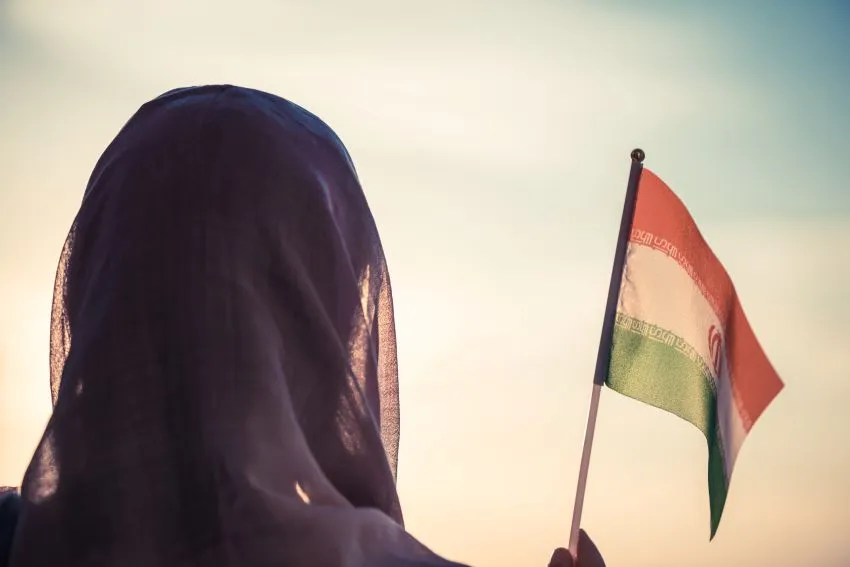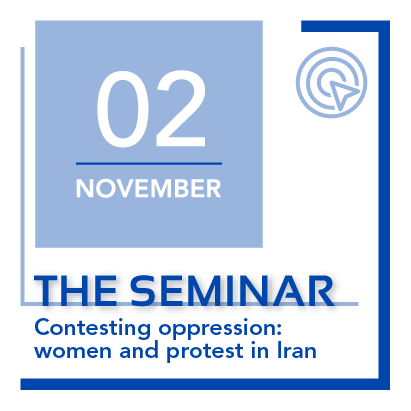
Human Rights, a Worrying Step Backwards
Forty days after the death of Masha Amini, the young woman killed last September 16 in custody after being arrested for not wearing the veil correctly, the protests in Iran have not subsided. The Iranian regime's brutality towards its own citizens, and especially women, cannot leave us indifferent. The universities and higher schools are at the heart of the demands of young Iranians who, shouting "women, life, freedom", contest a regime that has made discrimination and the violation of the most fundamental rights of the individual its flag. The violent repression of the protests that led to the death of at least 216 people and the injury of thousands of demonstrators cannot be limited to the exercise of the prerogatives of the State within its own territory.
In recent years, we have seen a resurgence of large-scale human rights violations perpetrated by states. The war crimes that Russia has committed and is committing in Ukraine, the war crimes in Syria, the deportations and violence against minorities in Myanmar and China just to name a few. Human rights violations constitute violations of international law.
As shown in the latest report by the UN Special Rapporteur on the situation of human rights in Iran (https://www.ohchr.org/en/documents/country-reports/a77181-situation-hum…), Iran is violating numerous provisions of the international treaties to which it is a party, the International Covenant on Civil and Political Rights and the Convention on the Rights of the Child. To understand the seriousness of the violations of international commitments, it is enough to consider that at least 32 minors appear to have been killed in the protests, including sixteen-year-old Sarina Esmailzadeh, killed with a baton by Iranian security forces.
The Iranian Government's current repression of peaceful protesters is in blatant disregard of the right to life (as contained in Article 6 of the Covenant and Article 6 of the Convention), the prohibition of arbitrary arrest or detention (Articles 9 and 10 of the Covenant and Article 37 of the Convention), the right to a fair trial (Article 14 of the Covenant, Article 40 of the Convention), the right to peaceful assembly (Article 21 of the Covenant, Article 15 of the Convention) and the prohibition of torture and inhuman, cruel or degrading treatment or punishment (Article 7 of the Covenant, Article 37 of the Convention). Moreover, the prohibition of torture and the prohibition of arbitrary deprivation of life are now considered norm and imperative and of international law (jus cogens), which aggravates the international position of Iran whose behavior undermines the fundamental values of the international community as a whole.
 The United States, the United Kingdom and the European Union have imposed sanctions against members of the Guardian Council, known as the morality police. In particular, the EU has adopted a comprehensive sanctions regime in response to serious human rights violations. The sanctions adopted to date are individual in nature and range from asset freezes to travel bans. In addition, the United States announced that it is expanding the range of Internet services available to Iranians to counter the authorities' interventions to reduce and cut off Internet access to their citizens.
The United States, the United Kingdom and the European Union have imposed sanctions against members of the Guardian Council, known as the morality police. In particular, the EU has adopted a comprehensive sanctions regime in response to serious human rights violations. The sanctions adopted to date are individual in nature and range from asset freezes to travel bans. In addition, the United States announced that it is expanding the range of Internet services available to Iranians to counter the authorities' interventions to reduce and cut off Internet access to their citizens.
Women are at the center of Iranian protests, protagonists as victims of police violence and a legal regime based on discrimination on the basis of sex. But even in legal regimes that recognize a formal prohibition of discrimination on the basis of sex, there is a retreat in ensuring substantial legal equality. The right to
physical integrity and health of women is called into question by laws that prohibit or limit access to abortion even in Western countries. Women who are victims of violence, especially when committed in the family, are not guaranteed adequate protection by the State. The principle of non-discrimination of human beings on the basis of sex is a universal value that must be effectively realized everywhere, because in the global world what happens in Kiev or Teheran ends up having effects even outside national borders.